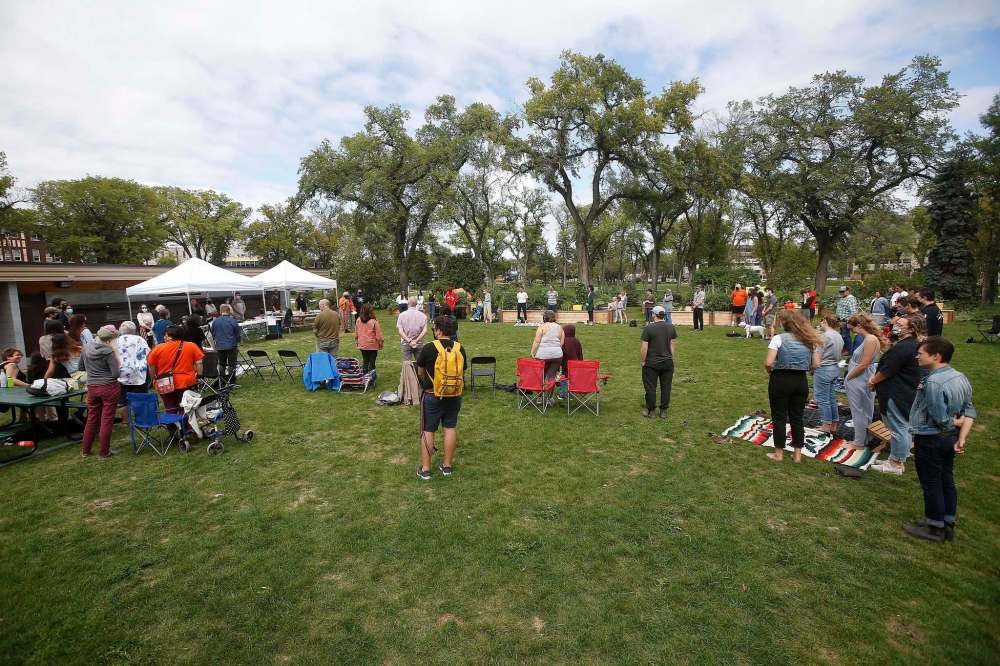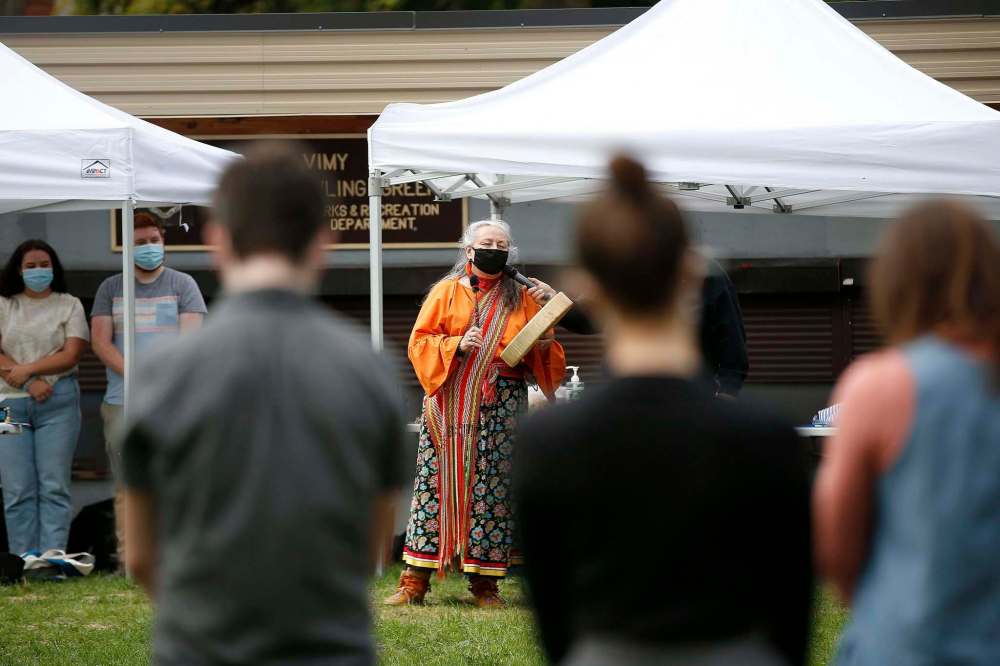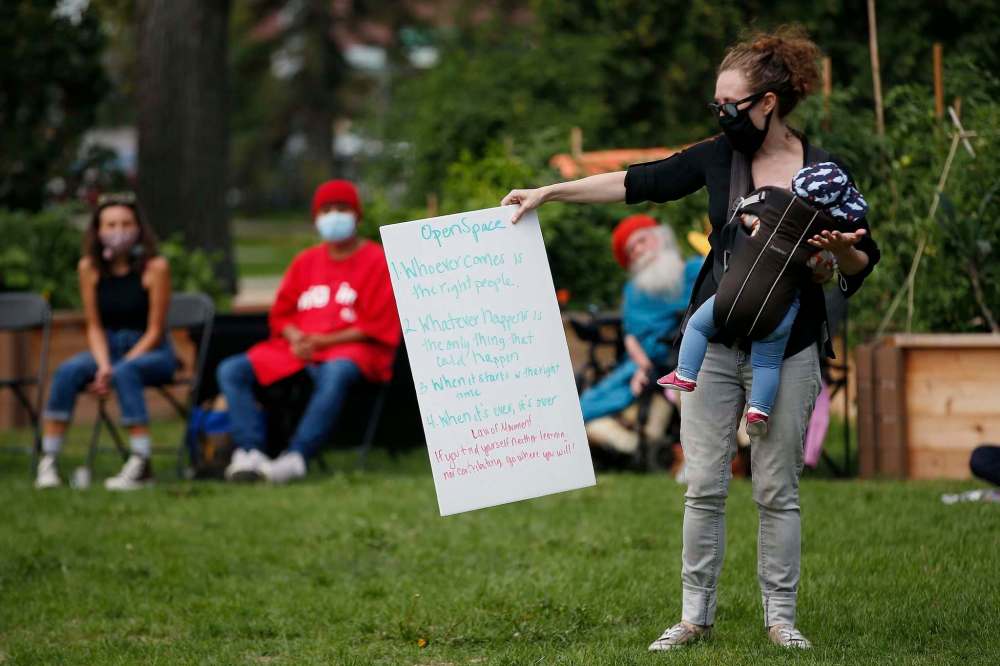Group engages community on renaming Wolseley neighbourhood
Advertisement
Read this article for free:
or
Already have an account? Log in here »
To continue reading, please subscribe:
Monthly Digital Subscription
$0 for the first 4 weeks*
- Enjoy unlimited reading on winnipegfreepress.com
- Read the E-Edition, our digital replica newspaper
- Access News Break, our award-winning app
- Play interactive puzzles
*No charge for 4 weeks then price increases to the regular rate of $19.00 plus GST every four weeks. Offer available to new and qualified returning subscribers only. Cancel any time.
Monthly Digital Subscription
$4.75/week*
- Enjoy unlimited reading on winnipegfreepress.com
- Read the E-Edition, our digital replica newspaper
- Access News Break, our award-winning app
- Play interactive puzzles
*Billed as $19 plus GST every four weeks. Cancel any time.
To continue reading, please subscribe:
Add Free Press access to your Brandon Sun subscription for only an additional
$1 for the first 4 weeks*
*Your next subscription payment will increase by $1.00 and you will be charged $16.99 plus GST for four weeks. After four weeks, your payment will increase to $23.99 plus GST every four weeks.
Read unlimited articles for free today:
or
Already have an account? Log in here »
Hey there, time traveller!
This article was published 30/08/2021 (1562 days ago), so information in it may no longer be current.
In 1870, Col. Garnet Wolseley led a military expedition into Manitoba to violently overthrow Louis Riel’s provisional government at the Red River Colony. On Sunday afternoon, a group gathered at Vimy Ridge Park to discuss how to push for the renaming of the neighbourhood that bears his name.
Red River Echoes, a Métis collective that first came together with the purpose of “bringing an alternative voice to what Métis people think in Manitoba” after Manitoba Metis Federation president David Chartrand put out an ad with the Winnipeg Free Press in March in support of the Winnipeg Police Service, put together the rendezvous to take questions and comments community members might have around the growing conversation to rename Wolseley.
“With a lot of names being changed right now, we thought it was a good opportunity,” Red River Echoes member Claire Johnston said. “And Wolseley in particular has a really violent and negative association for Métis people, and also all other people of colour in who live in Winnipeg.”

In the months since the remains of 215 children were found in unmarked graves near a residential school in Kamloops, B.C., calls have been sparked across the country to rename landmarks named after people who had a hand in the colonization of Canada. In Winnipeg, Wolseley isn’t the first instance — calls to rename Bishop Grandin Boulevard due to its namesake’s hand in the residential school system have resulted in consultations and a possible recommendation for its renaming coming to city council this fall.
In June, Red River Echoes members placed hundreds of posters around the neighbourhood that said Wolseley “personally incited racism, violence, murder and displacement” and oversaw troops who raped and killed Indigenous people, along with noting his involvement in British colonial invasions elsewhere and asking that people call on their local representatives to push to change the name.
Around 50 people took part in Sunday’s event, with conversations being held around topics including engaging local businesses in the renaming process and decolonizing methods of advocating for the change.
NDP MLA Lisa Naylor, who represents Wolseley, attended Sunday’s gathering and said while she understood the concerns from some residents who have positive attachments to the neighbourhood’s name or businesses that have used the name as part of their branding, she fully supported the push to change the name, noting “some of those stories belong in museums and in history books, but not necessarily to be honoured in a community.”
“I think the most important piece here is the reconciliation piece, and the fact that the name mostly does carry a racist and colonial history and that can’t be ignored,” she said. “For that reason, I do support the efforts of (Red River Echoes), to have these conversations in our community and to see if they can move the community towards a name change in a positive process.”
Any neighbourhood name changes would be decided at the municipal level.

Both Naylor and Johnston said the response they’d heard to the idea of a name change was positive — Johnston noted that many people in the neighbourhood aren’t aware of the history behind it, negating the argument that keeping the names would have educational value.
“They think, ‘Oh, I live in such a progressive, nice neighborhood, I love it here,’ but really don’t have that understanding of the name … It’s very much a false narrative, that somehow keeping those names up there, that people in Wolseley, or people in Winnipeg, are being educated by that name staying there, because they don’t know,” she said.
The next step for Red River Echoes is to continue gathering the community and inspiring people to get involved with the movement, Johnston said.
“I hope that people feel a sense of joy, they feel mobilized, and ready to take action. And just feel well equipped, feel grounded and ready to mobilize and make this change happen with us.”
— with files from Dylan Robertson

malak.abas@freepress.mb.ca
Twitter: @malakabas_

Our newsroom depends on a growing audience of readers to power our journalism. If you are not a paid reader, please consider becoming a subscriber.
Our newsroom depends on its audience of readers to power our journalism. Thank you for your support.





